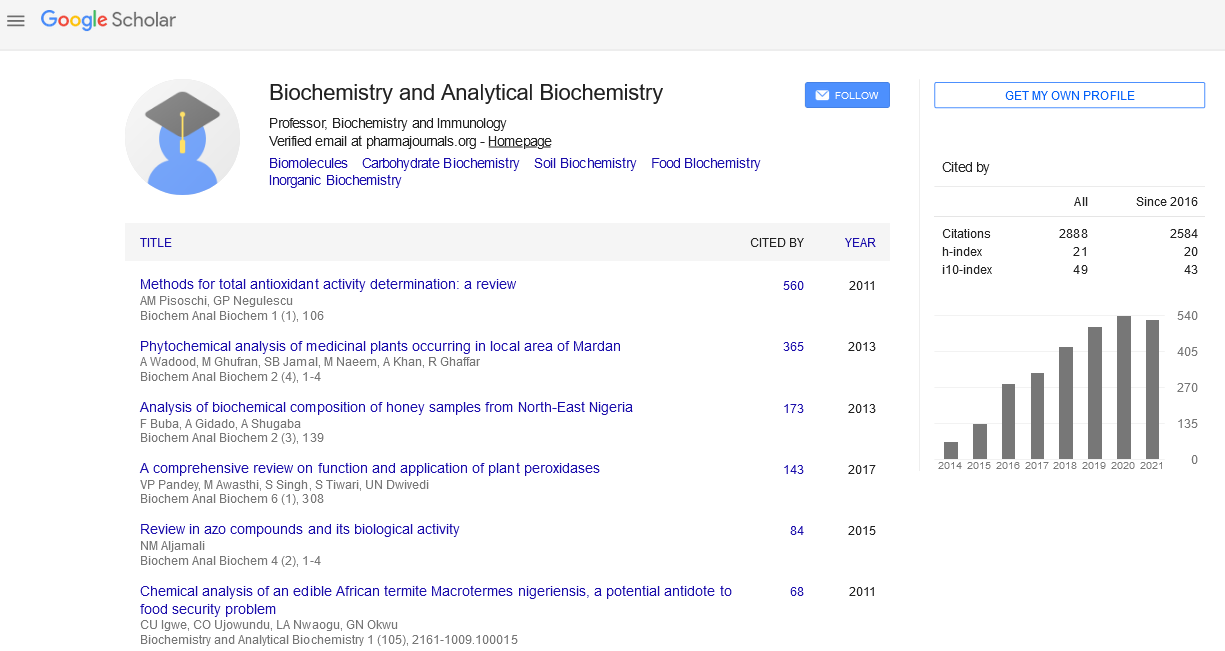Indexed In
- Open J Gate
- Genamics JournalSeek
- ResearchBible
- RefSeek
- Directory of Research Journal Indexing (DRJI)
- Hamdard University
- EBSCO A-Z
- OCLC- WorldCat
- Scholarsteer
- Publons
- MIAR
- Euro Pub
- Google Scholar
Useful Links
Share This Page
Journal Flyer

Open Access Journals
- Agri and Aquaculture
- Biochemistry
- Bioinformatics & Systems Biology
- Business & Management
- Chemistry
- Clinical Sciences
- Engineering
- Food & Nutrition
- General Science
- Genetics & Molecular Biology
- Immunology & Microbiology
- Medical Sciences
- Neuroscience & Psychology
- Nursing & Health Care
- Pharmaceutical Sciences
Abstract
Lipidemic Properties of Sorghum vulgare Leaf Sheath on Oxidative Markers and Heart Function Enzymes of Dyslipidemic Wistar-Albino Rats
Akuru Udiomine B and Okoko Tebekeme
Dyslipidemia is an abnormal amount of lipids such as triglycerides, cholesterol and/or fat phospholipids in the blood. The aim of this study was to investigate the lipidemic properties of Sorghum vulgare leaf sheath on oxidative markers and heart function enzymes on high-fat-diet induced dyslipidemic wistar-albino rats. Thirty-six (36) wistar-albino rats weighing 110-130 g were used for the study. The animals were distributed randomly into six groups of six animals each. Group 1 (control), group II to group VI were fed with high fat diet; group II (untreated), groups III to V received 400 mg/kg, 800 mg/kg and 1200 mg/kg aqueous extract of Sorghum vulgare leaf sheath respectively while group VI was treated with atorvastatin (0.2 mg/kg) which is a standard drug. The results of the study showed that aqueous extract of Sorghum vulgare leaf sheath (especially at 800 mg/kg) significantly reduced (p ≤ 0.05) body-weight, triglyceride concentration, very low density lipoprotein concentration, creatinine concentration and Lactate dehydrogenase activity. Malondialdehyde concentration, cholesterol concentration, glutathione peroxidase activity, creatine kinase activity and superoxide dismutase activity do not differ significantly (p ≤ 0.05). The results suggest that Sorghum vulgare leaf sheath has myocardial protective properties.


